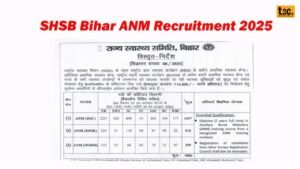Comprehensive Overview of Motor Vehicle Laws in India

Comprehensive Overview of Motor Vehicle Laws in India
Comprehensive Overview of Motor Vehicle Laws in India. India, with its extensive road network and increasing population of vehicles, has built a strong legal framework to manage motor vehicles, provide road safety, regulate emissions, and serve the public interest. The center of this framework is the Motor Vehicles Act, 1988, supplemented by Central Motor Vehicle Rules (CMVR), 1989, and several State-level rules and notifications.
1. Motor Vehicles Act, 1988 – The Backbone
The Motor Vehicles Act, 1988, is the main enactment dealing with every facet of road transport vehicles in India. It extends to all motor vehicles — personal, commercial, transport, and non-transport.
Major Provisions:
Licensing (Sections 3 to 28):
- No individual shall drive a motor vehicle unless holding a valid driving license.
- Learner’s license and permanent license are granted by regional transport offices (RTOs).
- Special transport licenses and heavy vehicles need special permits.
Registration of Vehicles (Sections 39 to 65):
- A vehicle is needed to be registered prior to road usage.
- The unique registration number as well as a smart registration card is provided for the vehicle.
- Change of ownership, hypothecation of vehicle, and ending of the same is also provided for.
Vehicle Permits (Sections 66 to 96):
- Transport vehicles (taxis, buses, trucks) need interstate and intrastate movement permits.
- There are specific permits such as stage carriage permits, contract carriage permits, and goods carriage permits.
Traffic Regulations and Control (Sections 112 to 138):
- Covers provisions regarding speed limits, one-way roads, parking rules, and the duties of drivers and conductors.
- Forbids dangerous driving, drunken driving, and improper use of vehicles.
Motor Vehicle Accidents (Sections 166 to 168):
- Offers compensation provisions for victims of road accidents.
- Claims Tribunals are established to dispose of such cases.
Motor Insurance (Section 146 onwards):
- Compulsory third-party insurance for all motor vehicles.
- Guardianship of victims of accidents due to uninsured or hit-and-run vehicles.
2. Central Motor Vehicle Rules (CMVR), 1989
These regulations, written in the form of the Motor Vehicles Act, include operational details and regulatory processes for adherence.
Important Aspects:
Safety Features: Airbags, ABS, crash testing, seat belts, etc.
Pollution Norms: Bharat Stage emission standards; currently Bharat Stage VI (BS-VI) is the strictest standard currently in operation.
Vehicle Fitness: Fitness certificates are compulsory for commercial vehicles.
Driving Schools and Testing: Requirements for training institutes and testing centers.
Vehicle Modification Rules: Prohibits and controls modification of vehicles.
3. Motor Vehicles (Amendment) Act, 2019
It was a comprehensive overhaul aimed at road safety, digital governance, and tougher penalties. It aligned Indian motor vehicle laws more closely with global norms.
Major Points:
Stiff Penalties:
- Driving without a license: ₹5,000 (increased from ₹500)
- Overspeeding: ₹1,000–₹2,000
- Hazardous driving: ₹5,000 and/or imprisonment
- Driving under influence: ₹10,000 fine and/or imprisonment
- Juvenile driving: Parent/guardian held liable; vehicle registration revoked
Electronic Enforcement:
- CCTV, speed cameras, and electronic monitoring allowed.
- Digitization of challans (e-challan system) and license/registration information.
Good Samaritan Law:
- Shields bystanders who assist accident victims from legal and procedural harassment.
- Hospitals are mandated to provide instant relief irrespective of legal niceties.
Aggregator Guidelines:
- Ola and Uber ride-sharing entities are governed statutorily through central rules.
- Priority on driver verification, fare standards, and security of passengers.
Better Licensing System:
- Establishment of auto-driving test circuits.
- Online applications and renewals through SARATHI portal.
4. Enforcement and Regulatory Bodies
Ministry of Road Transport and Highways (MoRTH):
- Central policy decision-making and implementation authority.
- Prepares national permits, vehicle standards, and road safety regulations.
State Transport Departments & RTOs:
- Issuance of licenses, registration, tax collection, and local traffic control.
- Imposition of penalties and monitoring compliance.
Traffic Police & Road Transport Officers:
- Enforcement of traffic laws on a day-to-day basis.
- Empowered to levy spot fines, tow away vehicles, and suspend licences.
5. Road Safety Initiatives and Reforms
India has one of the highest road accident death counts in the world. To act on it, there have been initiatives in recent years:
- National Road Safety Policy (NRSP)
- Bharat New Car Assessment Program (BNCAP): To promote safer car production.
- Road Safety Audit Guidelines: Road infrastructure checks to eliminate black spots.
- National Highways Traffic Regulations: Dedicated regulations for expressways and highways.
6. Environmental and Emission Controls
- Bharat Stage Emission Standards: Euro norms patterned; BS-VI introduced in 2020.
- PUC (Pollution Under Control) Certificates: Compulsory for all vehicles.
- Electric Vehicle Push: Incentives under FAME (Faster Adoption and Manufacturing of Hybrid and Electric Vehicles) Scheme.
Conclusion
India’s motor vehicle legislation is crafted to tackle the intricate issues of contemporary transport — safety, sustainability, accessibility, and efficiency. With technology adoption and an active legislative strategy, the regulatory environment is transforming to address the increasing needs of urbanization and mobility. Yet, enforcement uniformity and public awareness are key to the success of these legislations. Comprehensive Overview of Motor Vehicle Laws in India
Stay tuned on our website, as if any official information pops up then we will update you in minutes! If you want all the latest updates on time, then join our student community on WhatsApp!
Choose the right career yourself by booking personal guidance from professionals on Mytagapp.com









